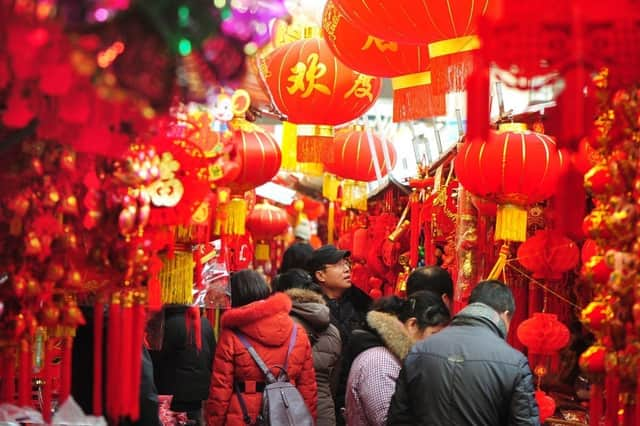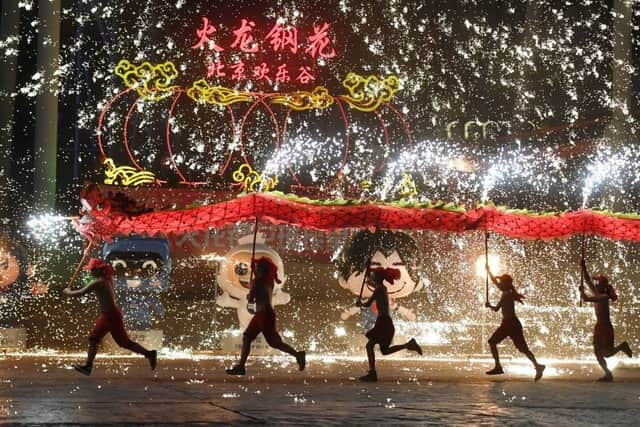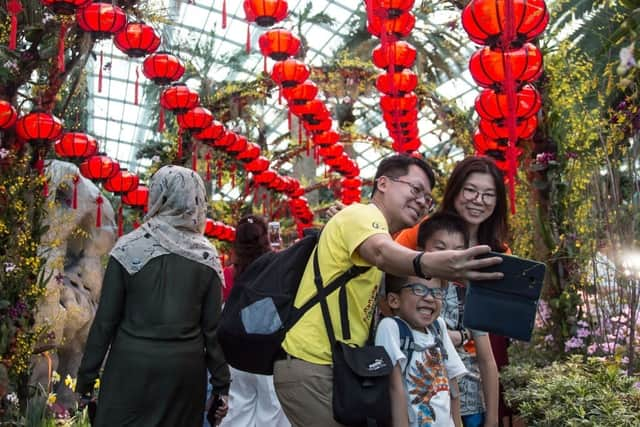Chinese New Year 2020 - when is it and why does the date change?


Celebrated by the 1.4 billion people in China as well as millions of expats and those with Chinese heritage across the globe, Chinese New Year is one of the biggest parties on the planet.
With fireworks lighting up the sky, lots to eat and red envelopes full of money for the kids, it’s a time for families to celebrate together as they say goodbye to the old year and do their best to attract good fortune for the new one.
Advertisement
Advertisement
But why does the Chinese New Year fall on a different day each time?


Fireworks and dancing dragons help ring in the New Year. Picture: Greg Barker/AFP via Getty Images
When is Chinese New Year 2020?
2020’s Chinese New Year will fall on Saturday 25 January
Which animal year is Chinese New Year 2020?


This year will be the year of the rat.
This naming tradition comes from the animals of the Chinese zodiac, with each year being assigned one of the following animals – rat, ox, tiger, rabbit, dragon, snake, horse, goat, monkey, rooster, dog and pig.
The animals are rotated in sequence based on a fable about them racing and the order in which they finished.
Advertisement
Advertisement
Depending on which year you were born, your animal year can bring good or bad luck.
Why is it celebrated?
Chinese New Year differs from the Western New Year’s Day because it is based on the traditional Chinese calendar rather than the Gregorian calendar which is used around the world, including in modern day China.
The traditional Chinese calendar is based on astronomical phenomena - days still begin and end at midnight but months begin on the day of the full moon and years begin on the second new moon after the winter solstice.
This means New Year begins on the day of the first new moon that falls between 21 January and 20 February.
Advertisement
Advertisement
While it is commonly referred to in the West as “Chinese New Year”, the date is also celebrated across Korea, Vietnam, Singapore and elsewhere. It could more accurately be termed the “Lunar New Year”.
In China, the celebrations are usually termed the “Spring Festival”.
Above all else, the New Year is a time for families to come together. Picture: Ore Huiying via Getty Images
How is it celebrated?
Fireworks are a huge part of Chinese New Year celebrations, with more rockets set off on that night than on any other night of the year.
Advertisement
Advertisement
Over 500 cities in China have actually now either restricted or outright banned fireworks due to safety concerns and air pollution, but they remain an immensely popular part of the New Year celebrations.
The tradition comes from a folk tale about a monster named Nian who was scared away using firecrackers. The colour red was also an important tool in defeating the monster, hence why everything will be decorated red during the New Year period.
Bringing good fortune
The New Year is also seen as a time for honouring gods and ancestors in the hope of bringing good fortune for the year to come.
There are all kinds of taboos which must be avoided to prevent bad fortune, such as showering on New Year’s day or using words like “illness” and “death”.
Advertisement
Advertisement
Above all else, though, New Year is a time to be spent with family. As people flock home to spend the holiday with their relatives, the largest human migration of the year takes place - known as “chunyun” or “spring migration”.
Children are given red envelopes filled with money from their older relatives in a gesture which is also designed to transfer good fortune between them. Envelopes can also be exchanged between employers and employees, as well as between friends.
In more recent times, it has become fashionable to give digital red envelopes instead of physical ones. This has created an odd phenomenon known as “snatching red pockets” in which people send one into a group chat and watch their friends scrap it out.
Thanks to the pressure many younger people feel to impress their parents and grandparents, an industry has been created providing actors to pose as boyfriends and girlfriends for embarrassed singles over the holiday season.
Advertisement
Advertisement
In Chinese, the common greeting at New Year is “xin nian kuai le”, which just means “Happy New Year”. Those in Hong Kong and other Cantonese-speaking parts of the world tend to go with “gong hei fat choy” which translates roughly to “congratulations on your good fortune”.
This article was originally published on The Scotsman